The record that changed my life – by Neil Gaiman, David Mitchell, Clive James and Olivia Laing
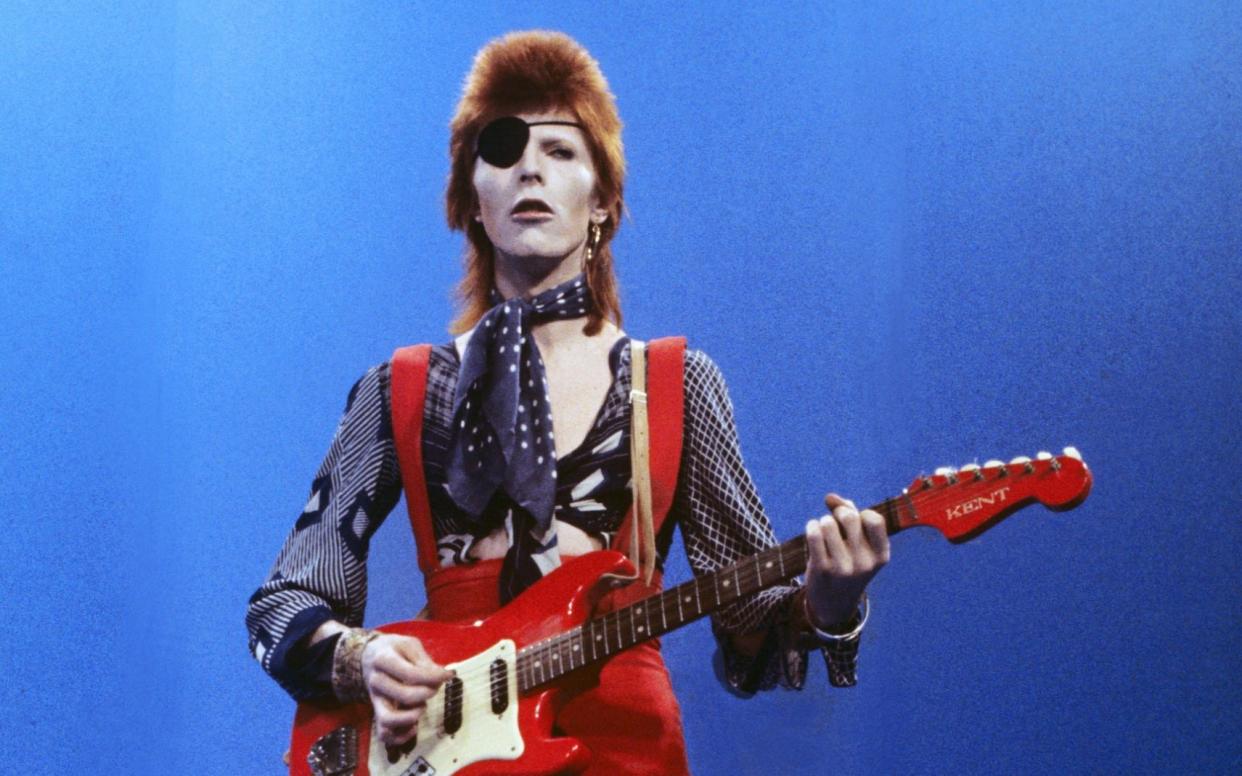
- Oops!Something went wrong.Please try again later.
- Oops!Something went wrong.Please try again later.
- Oops!Something went wrong.Please try again later.
- Oops!Something went wrong.Please try again later.
David Mitchell
Blue by Joni Mitchell (1971)
In that shadowy era before the internet, buying an LP on spec was a risky venture. Your only means of hearing an album before handing over your non-refundable £5.49 was by listening to someone else’s copy – in which case you could just tape it. Printed reviews came and went at the speed of discarded magazines, and DJs’ opinions were available only in real time. No podcasts, no archives, no nothing. For old releases, all you could do was try to divine the quality of the material from cover art and song titles. A dud left you with gambler’s despair. The reward for striking gold, however, was a who-dared-won bliss, possibly unknowable in an age when music is cheaper than tap water.
One June day in 1987, I was in a record shop in Great Malvern, my hometown. I had flirted with buying the dusty cassette of Joni Mitchell’s Blue for many months. The singer’s name caught my eye, for obvious reasons. The cover was a classy white-on-blue photograph of the artist’s face. It wasn’t trying too hard to impress. I had sat my final A-level the previous day; until the results were published in August, my life was a blank Scrabble tile. I told Joni’s white-on-blue face, OK, today’s the day I’m getting you out of here. I paid, slotted the cassette into my knock-off Walkman and pressed “play”.
Good God. The next 35 minutes transformed my understanding of what songs could do and what singers could be. Firstly, Joni Mitchell’s voice is a living thing of contradictions: it warbles with vibrato but is astringent and harsh, too; it’s acrobatic yet grounded; vulnerable yet indestructible; mannered and octave-straddling, yet as natural as breathing. Secondly, the instrumentation. The songs on Blue are stripped back to a guitar with atypical tunings; an Appalachian dulcimer drone; a lick of percussion or slide guitar; and a piano. That’s your lot. The lack of clutter makes space for my “thirdly”: the album’s consummate lyrics.
The opening track, All I Want, is a love song, but not like anything on Top of the Pops or my parents’ Neil Diamond or Barbra Streisand records. The lines are made of everyday vocabulary assembled in rhymes – “shampoo” and “renew” – that I’d never encountered before. I realised how lazy most lyrics are, and absorbed the album’s first lesson: when writing is good, people pay attention for fear of missing out on the next fresh pleasure.
My Old Man is built of Joni’s swooping voice, one undulating piano and nuanced emotions. In 1987 I’d never been in love, much less fallen out of it, so I doubt I was conscious that the affair described in this song contains the seed of its own ending, though perhaps I somehow intuited it. The ache in Little Green was palpable without knowing that the girl in the song is the daughter that the teenage, penniless, unmarried Joni had given up for adoption.
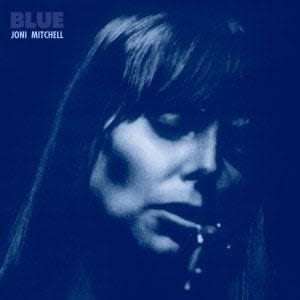
One consequence of musical purchases being so fraught with risk for my generation was that we remember the “virgin plays” of albums for the rest of our lives. That day, a midsummer mist had half-submerged the Malvern Hills. The sun was a pale disc, like a torch behind a sheet. When I reached the end of Great Malvern and the beginning of Poolbrook Common, Carey came on, in its upbeat glory with congas and strumming. For a youth whose most exotic jaunt had been around the youth hostels of North Wales, the song’s setting – a lamplit room, a Mediterranean breeze, a holiday fling – made me yearn to be somebody else, anywhere but here.
My memory says I’m halfway across the golf course when I hear Joni’s much-covered River for the first time in my life. It’s a watershed song on the album. Prior to this, love is present and, for the most part, celebrated: from hereon in, love is a source of pain. River starts, jarringly, with a couple of bars evoking Jingle Bells and a line about cutting down trees. What is sadder than losing love except losing love at Christmas? The self-scrutiny is stark. Here is an artist, unpeeled. How could Joni stand it? The song offers no solution, no way to make it right – only the unfulfillable wish for a frozen river to skate away on.
A Case of You is darker still, a song about the scars of love. The title suggests a nasty infection as well as a box of vintage wine, and the song’s boast – of being able to drink “a case of you” and still be standing – is a hollow one. Love is intoxicating, and the craftiest part of the intoxication is to make you believe you’re seeing things clearly when you aren’t.
The songs on Blue are pages torn from a raw autobiography. I had never heard anything like it. (Kris Kristofferson’s response to the album was, reportedly, “Joni! Keep something of yourself!”) Yet you don’t play Blue thinking, “How weak”: through the alchemy of art, vulnerability is turned to armour. Time and the changing world have not been kind to many albums that mattered to me as a kid, but Blue is art, evergreen and ageless.
My final paragraph will read like a novelist’s embellishment, but it’s not. In the last hundred yards of my walk from Great Malvern, I turned into the estate where my parents lived and stepped off the pavement for a mother and her very young daughter. The girl piped up: “Look, Mummy, that man has a wire coming out of his ear!” Her mother smiled my way and I realised that her daughter was talking about my Walkman – and me. Nobody had ever referred to me as a man before. I’m still working out what one is, half a lifetime later.
Clive James
Ellington at Newport by Duke Ellington (1956)
When I started at Sydney University in the late 1950s the first American jazz LPs were just coming in and I personally tested some of them to destruction on my Carrygram, which was set up in our kitchen at home. I had the Jelly Roll Morton and his Red Hot Peppers 12-inch LP, which I played until my mother rebelled after hearing The Chant once or 10 times too often. I also had a big Duke Ellington phase, centred around a sumptuous collection of the greatest hits of the 1940-41 band, although I didn’t neglect the 10-inch LP of his hits from the early 1930s, because my trumpet hero Rex Stewart was prominent in the line-up.
But my most played Duke LP – I played it to death in fact, because the day came when it was too worn out to work at all – was the live recording from the 1956 Newport Jazz Festival at which Duke’s band tore the whole district to pieces with an extended version of Diminuendo and Crescendo in Blue.
Boy, did I love that. I had never before rated Paul Gonsalves highly but his tenor solo on that one went on and on beyond infinity and into the sublime. Listen to it now and you can hear how Duke’s left hand was always the real driving force of the Ellington tempo. By now I’ve forgotten all the scholarship (was it Philly Joe Jones or just plain Joe Jones who was slapping the edge of the stage with a rolled-up newspaper as the hurtling melody climbed up and onward into a frenzy?). But if I get time I’ll go back there and check up. Back to a time when Duke was alive.
I swapped smiles with him once, in the late 1960s, after a Sacred Music concert at Great St Mary’s in Cambridge, but within seconds he was away in the car with the only side-man who was ever allowed to ride with him, Harry Carney; and I never saw him again, though I never stopped admiring the best of his music, either. Even when in the grip of grandiloquence, he would always swing, and in that Newport LP the whole orchestra swung like a train coming.
Clive James died on Nov 24 2019
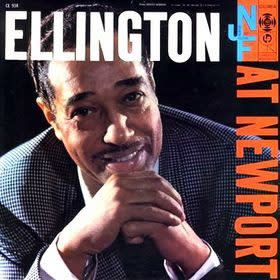
Olivia Laing
Automatic for the People by REM (1992)
Automatic for the People always seems to me like an autumn album, muted and piercing at the same time. It’s music for listening to in the bath or maybe far out to sea. It was released just before I went to sixth form college and is tied inextricably in my mind with the long walk from the bus stop in my dead-end Hampshire village, a straight road through a scattering of council houses to a new estate in what used to be farmland.
I’d fallen in love that summer and had my heart broken for the first time. Every afternoon, I’d walk home alone, past the tattered roses, and go up to my bedroom, papered with torn pictures of the Manic Street Preachers and My Own Private Idaho, any gaps covered in scribbled lines from Burroughs and Faulkner. I’d sprawl on the carpet with my typewriter, scissors and a pile of my sister’s discarded copies of i-D and The Face and spend the long evenings making zines about late roses and November skies, the enormous feelings of being 16. The sadness of Michael Stipe’s voice seeped under my skin, creating a convivial fug of melancholy.
I had a penfriend back then with beautiful spiky writing and she sent me a letter once with the lyrics of Find the River twisted around the envelope. The litany of flower names – bergamot, bayberry, indigo – entangled itself with a book I was reading at the same time, Modern Nature by Derek Jarman. Both felt like artefacts from the Aids crisis. I don’t think Stipe had yet come out, but his emaciated form on Top of the Pops, gaunt and ecstatic, dancing as if he was deep in a trance, fuelled rumours at school that he had Aids. He didn’t, but the album was, he later said, riven by his feelings of mourning and anxiety, porous and brimming with tenderness and vulnerability.
My favourite song was Nightswimming, Stipe’s voice painfully clear and aching against lush little tendrils of orchestration. For years, I put it on every compilation tape I made, each with a painstakingly hand-collaged cover. It still has the capacity to conjure the specific gravity of that room, my first real studio, its air dense with a nineties funk of white musk and patchouli.
Years later, I wanted to call my first book Find the River, in gratitude. What was it I wanted to say thank you for? The company, I suppose; the idea that difficult emotions might be companionable when shared, might even be the fuel for something gorgeous, something that sustains me still.
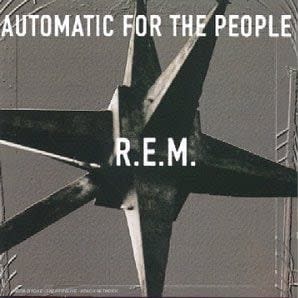
Neil Gaiman
Diamond Dogs by David Bowie (1974)
Diamond Dogs is my favourite David Bowie album, which means it’s more or less (take a little Lou Reed, give a little Elvis Costello) my favourite album.
Which is odd, because it’s not the best David Bowie album. It didn’t change anything forever in the way that other Bowie albums did. It exists at the cigarette-stub-end of Bowie’s Ziggy haircut, as a resting place for songs from a dead musical based on Nineteen Eighty-Four, and a pencil sketch of an ambitious science fiction project that never happened.
I had discovered Bowie in 1972. I was just 12 years old, a scholarship boy in a minor prep school in Sussex, obsessed by science fiction and fantasy and horror, with no music that spoke to me directly. And then I heard Space Oddity on the radio, and I got the same buzz from Bowie that I did from science fiction. A friend had Hunky Dory, and I listened to it. My cousin Adam had The Rise and Fall of Ziggy Stardust and the Spiders from Mars.
I was already a 13-year-old fan when Diamond Dogs came out. I would sit and draw Bowie with the Aladdin Sane lightning bolt going down his face. I put the Diamond Dogs cover poster up in my bedroom. I could watch the half-dog Bowie freak from my bed. It was the version that had been in the centre pages of Sounds before the album was released, and it was the uncensored, original Guy Peellaert image: the word above the dog-man’s head was Alive, not Bowie, and the dog was unquestionably male.
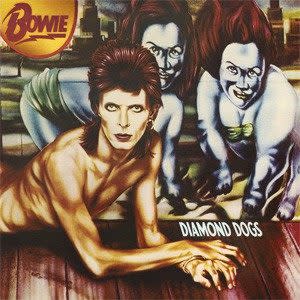
My love of Diamond Dogs is not about the songs, or the story, or even the fragments of science fiction that glisten through the album. Orwell’s Nineteen Eighty-Four is there, obviously, but it seemed littered with so much more than that: mutant eyes and crying lizards, all in a rotting city that had once been New York.
No, it’s my favourite album because it was mine – in a way no other Bowie album had been, or would be again. I had spent a year or more listening to the albums recorded in the distant past, when I was young: everything from the 1967 David Bowie album to Ziggy Stardust. I loved them all, but they had existed before I found them.
Diamond Dogs came out in January 1974. It was the best album because of ear candy like Rebel Rebel; because it contained complex lyrics on Sweet Thing and Candidate that made me feel like I was being shown a 12-hour drama through a letterbox slot; because the opening monologue pronounces the album unashamed science fiction; because it sent me to the school library aged 13 to borrow Nineteen Eighty-Four, a date that back then was only a decade away.
It’s not that Diamond Dogs made me a science fiction writer. (I didn’t really grow up to be a science fiction writer.) But it fed the part of me that made things up, that fell for dystopias and mutants, for rotting skyscrapers and rats the size of cats, shaped the inside of my 13 year-old head − and made me who I am.
Adapted from Long Players: Writers on the Albums that Shaped Them, ed Tom Gatti, published by Bloomsbury on June 10 at £12.99. To order your copy for £10.99, call 0844 871 1514 or visit the Telegraph Bookshop

